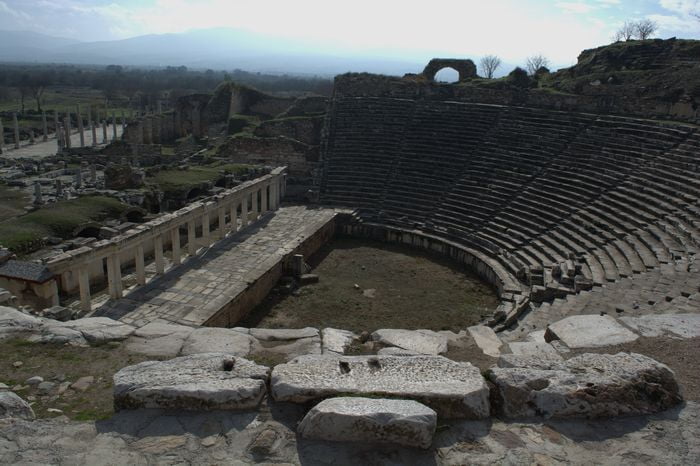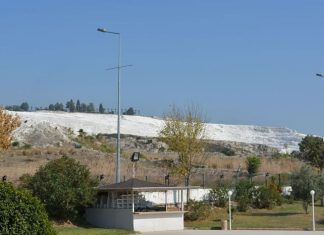For this Justinian left them unpunished, awaiting the time when they should have gained immense riches; as soon as this happened, he brought some charge against them for which there was no defense, and confiscated their entire property all at once, as he had done to John of Cappadocia.
Everyone appointed to office during this period of course became immensely wealthy at once, with two exceptions: Phocas, whom I have mentioned elsewhere as an utterly honest man, who remained uncorrupted by gain during his office; and Bassus, who was appointed later.
Neither of these gentlemen held their office for a year, but were removed after a few months as useless and unsuited to the times. But if I went into all the details, this book would never end: suffice it to say that all the rest of the magistrates in Constantinople were equally guilty.
Also everywhere else in the Roman Empire Justinian did the same. Picking out the worst scoundrels he could find, he sold them the offices they were to corrupt, for large sums of money. Indeed, an honest man or one with any sense at all, would never think of throwing away his own money on the chance of getting it back by robbing the innocent.
Pillaging the country
When Justinian had collected this money from such bargainers, he gave them complete power over their subjects, by which, pillaging the country and the inhabitants, they were to become rich. And since they had borrowed money at heavy interest to pay the Emperor for their magistracies, as soon as they arrived in the cities of their jurisdiction, they treated their subjects with every kind of evil, caring for nothing but how they might fulfill their agreements with their creditors and themselves thereafter be listed among the super-wealthy.
They saw no peril and felt no shame in this conduct; rather, they anticipated that the more they wrongfully killed and plundered, the higher would be their reputation; for the name of murderer and robber would prove the energy of their service. However, as soon as he heard these officials had become adequately wealthy, Justinian snared them with a fitting pretext, and straightway seized their fortunes in one swoop.
He passed a law that candidates for offices must swear they would keep themselves clean of all graft and never give or receive any bribe as officials; and all the curses that were named by the ancients he invoked on any who should violate this agreement.
But the law was not over a year old before he himself, disregarding its words and maledictions, shamelessly put these offices up for sale; and not secretly, but in the public Forum. And the buyers of the offices, breaking their oaths also, plundered more than ever.
Read More about The Friar of Novara part 7








